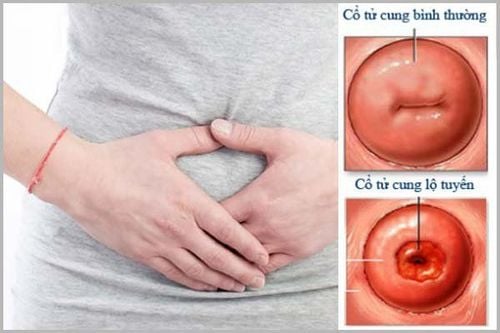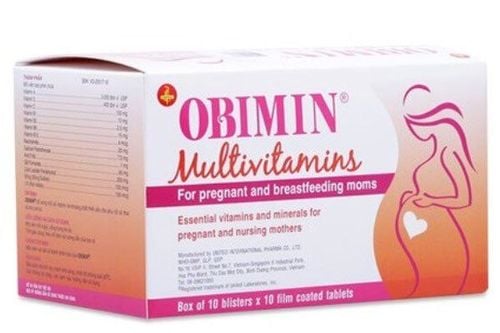1. What is Cervicitis?
The cervix is the lowest part of the uterus and plays a role in producing mucus to facilitate intercourse and allow sperm to move deeper into the uterus to reach the fallopian tubes for fertilization.
Cervicitis refers to inflammation and infection causing damage to the cervix. Cervicitis during pregnancy is also relatively common. Typically, during the first and last trimesters, pregnant women are more susceptible to gynecological infections, especially cervicitis.
Common symptoms of cervicitis during pregnancy include: Swelling and inflammation of the cervix; Increased vaginal discharge with an unpleasant odor; Pain, itching, and irritation in the genital area.
Engaging in sexual activity during this time can exacerbate cervicitis during pregnancy.
2. Causes of Cervicitis During Pregnancy
The causes of cervicitis during pregnancy include:
- Hormonal imbalances during pregnancy.
- Improper hygiene of the genital area, either excessive or insufficient.
- Changes in the vaginal environment: Overuse of cleaning agents and cosmetic hygiene products can disrupt the pH balance, creating conditions for bacterial invasion.

- Wearing tight, restrictive underwear, causing discomfort and promoting bacterial growth.
- A moist genital area with excessive discharge, encouraging bacterial proliferation that can infect the cervix.
- Unsafe sexual activity, leading to gynecological infections.
- Previous untreated gynecological infections.
- A history of miscarriage, abortion, or premature delivery without proper post-care, resulting in infections.
3. Is Cervicitis During Pregnancy Dangerous?
Pregnancy is a highly sensitive period, requiring special attention if the expectant mother contracts an infection.
If cervicitis during pregnancy is not promptly treated, it can adversely affect the development of the fetus.
Specifically:
- If the mother has cervicitis caused by Candida infection, a vaginal birth can expose the baby to fungal infections, causing oral thrush (oral candidiasis) or fungal dermatitis.
- More critically, the fetus may suffer from malnutrition or increased risks of premature birth, weak immunity, and fungal pneumonia.
- If cervicitis is caused by gonorrhea bacteria, the infection from the mother's genital discharge can affect the newborn's eyes, leading to conjunctivitis, characterized by red, swollen eyes with yellow pus, potentially impacting the child's vision.
- Increased risks of premature rupture of membranes, amniotic fluid infection, and fetal infections can result in premature birth.
- Cervicitis during pregnancy can also reduce uterine elasticity, increasing the likelihood of miscarriage compared to normal pregnancies.

4. Treatment for Cervicitis During Pregnancy
Gynecological infections, whether in non-pregnant or pregnant individuals, yield better results with early detection.
- For acute cervicitis, doctors typically prescribe medications, often combining oral antibiotics with vaginal suppositories to enhance treatment effectiveness.
- For chronic cervicitis, treatment may involve specialized cleaning solutions to cleanse the genital area. During pregnancy, invasive surgical methods cannot be employed. Surgical interventions are typically considered after childbirth.
Additionally, women should adopt preventive measures to minimize the risk of cervicitis during pregnancy.
To prevent cervicitis during pregnancy, women should:
- Maintain proper hygiene of the genital area.
- Choose breathable, absorbent underwear.
- Avoid using cleaning solutions with strong detergents.
- Limit sugar and sweet foods to prevent increased vaginal secretions.
- Consume yogurt to effectively prevent vaginal infections.
- Avoid sexual activity if a gynecological infection is detected.
Commit to completing treatment to eradicate the disease.

If cervicitis during pregnancy is not treated promptly and correctly, it can negatively affect the health of both the mother and the fetus. Therefore, if any unusual symptoms appear, women should seek medical advice and treatment early. Avoid self-medicating, as it may harm the fetus.
Please dial HOTLINE for more information or register for an appointment HERE. Download MyVinmec app to make appointments faster and to manage your bookings easily.













